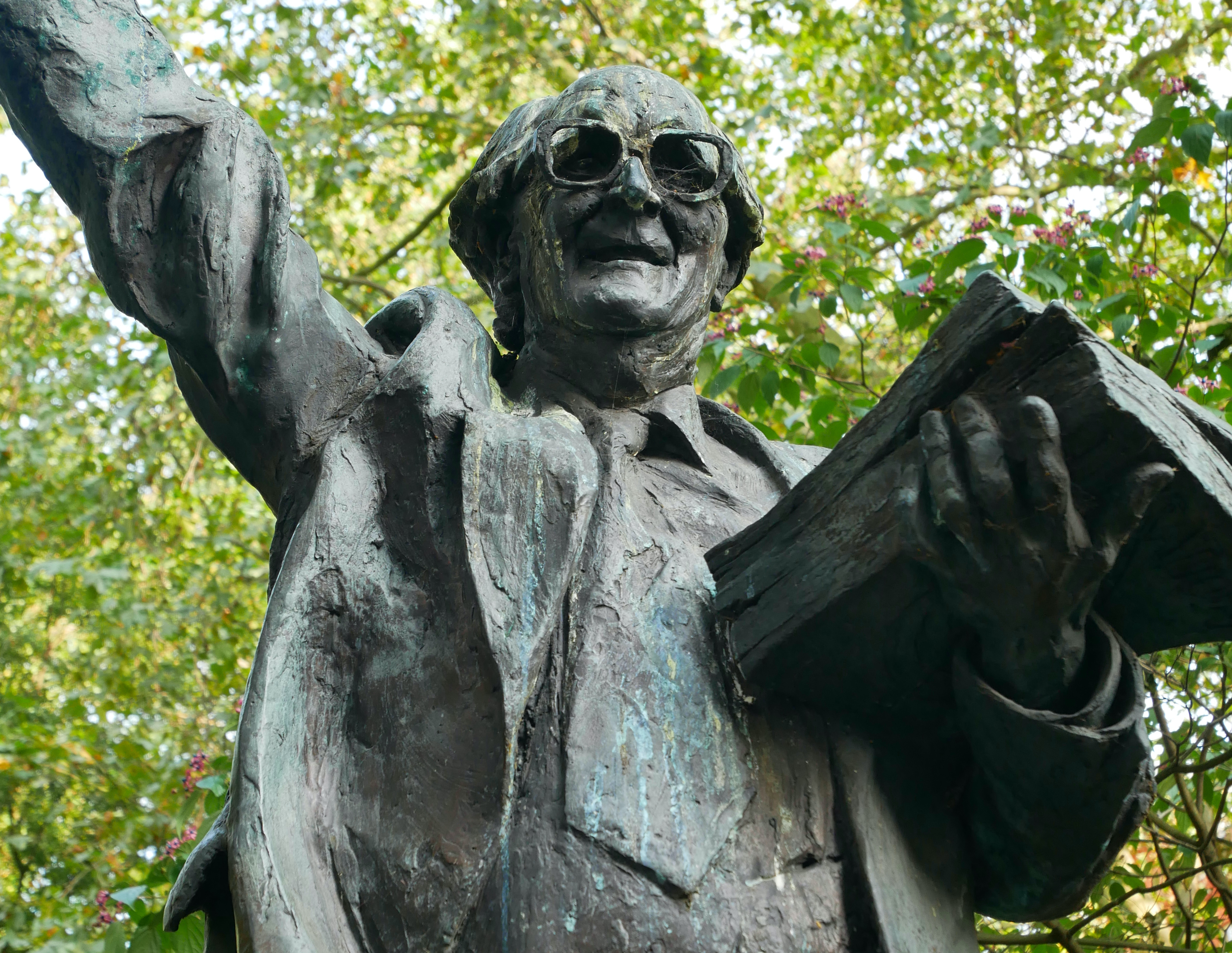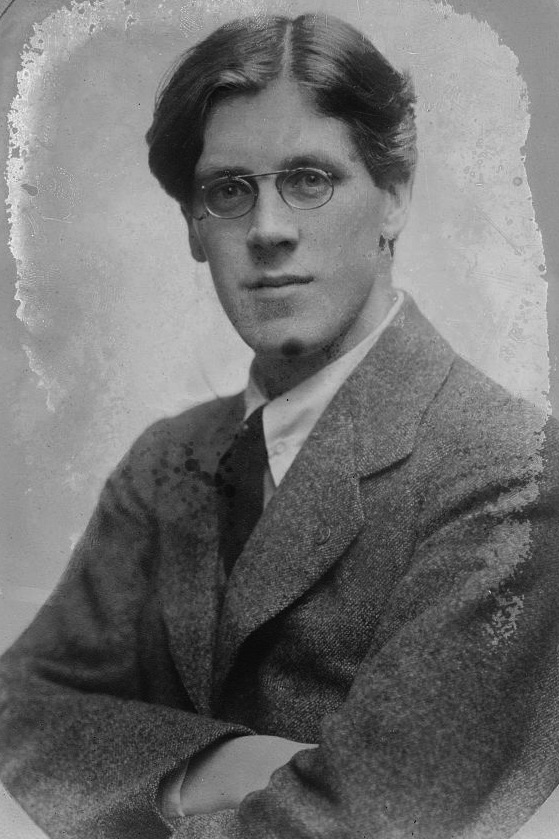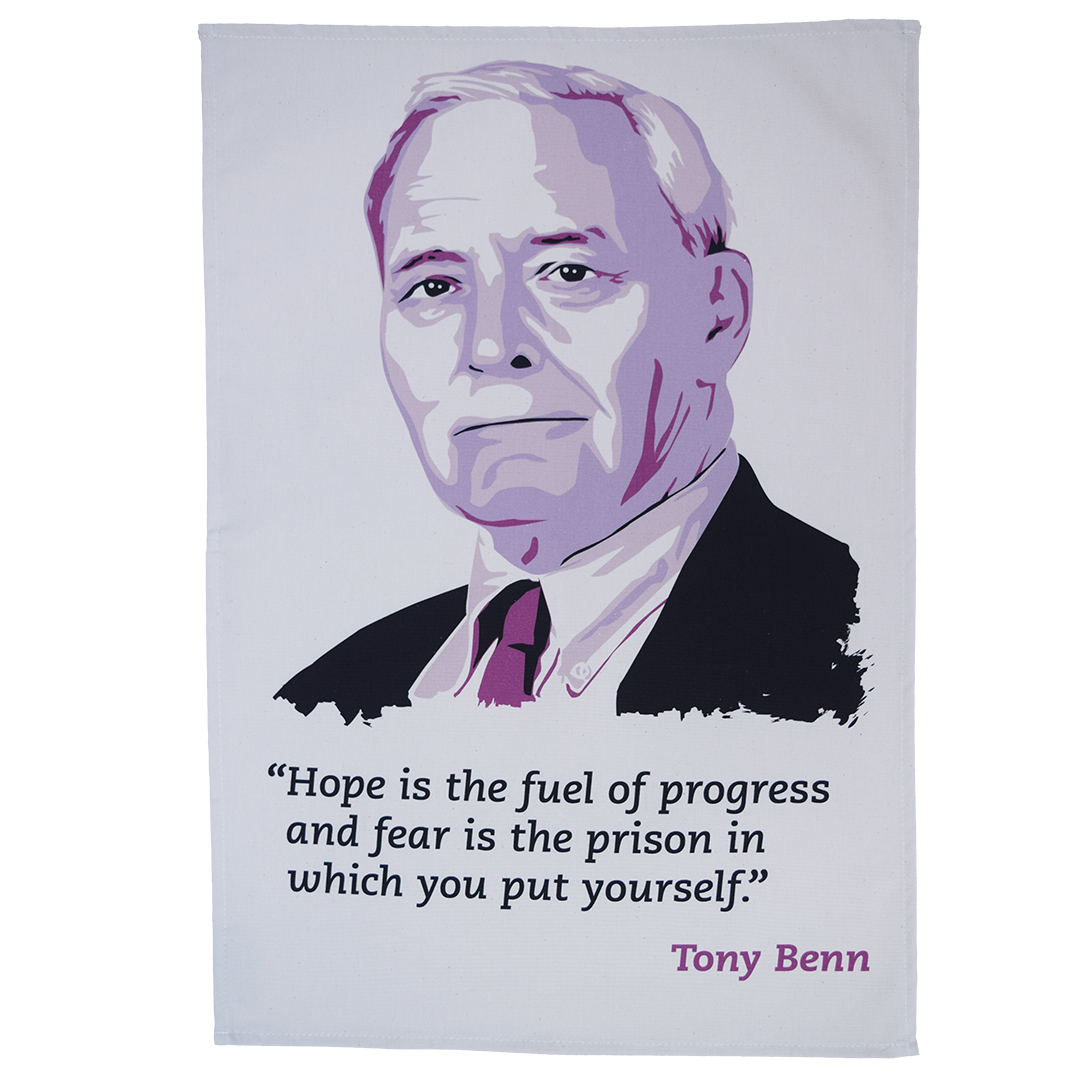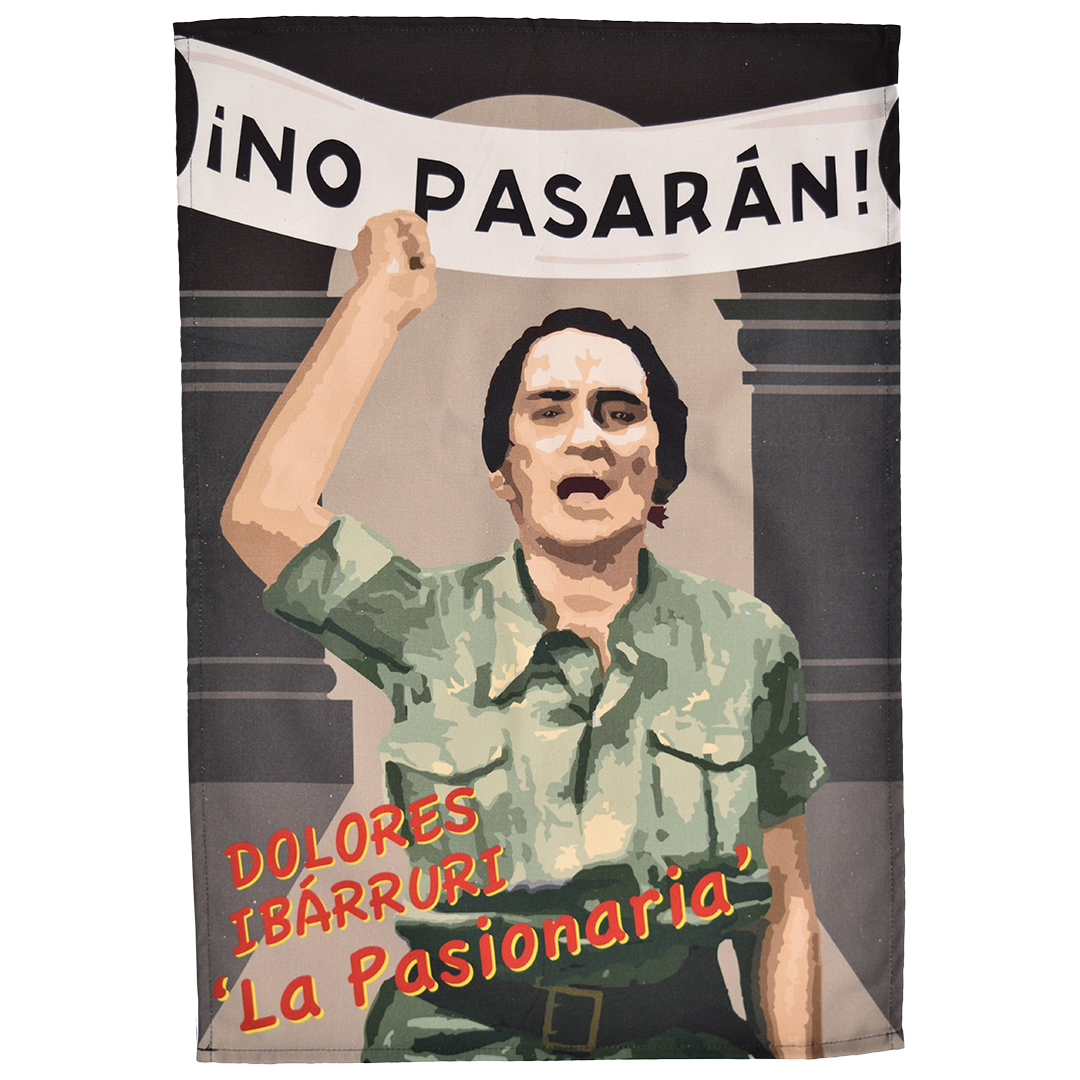Unjust Obscurity: Fenner Brockway and the Internationalist Struggle
Posted by Pete on 1st Nov 2021

The story of the British radical you probably haven't heard of...
There’s a passionate internationalist tradition among British radicals.
Through thick and thin, many figures on the left have shown solidarity with radical struggles around the world.
A number of these internationalists are still well-known to us: Bertrand Russell,
Sylvia Pankhurst, Tony Benn, and countless others.
But Fenner Brockway, born today in 1888, has fallen into an unjust obscurity.
Tony Benn was first elected in 1950, and soon became an icon of the British left
Click to view our Tony Benn tea towel
The son of a Christian missionary, Brockway was born in faraway Calcutta (now Kolkata). Having moved back to England for school, he grew up to become the major figure of radical internationalism in Britain.
After an early spell with the Liberal Party, a single meeting with Keir Hardie converted Brockway to socialism and the labour movement.
He quickly found a political home in the Independent Labour Party (ILP), where he helped lead domestic opposition to World War One.
He formed the No-Conscription Fellowship (NCF) which required members to ‘refuse from conscientious motives to bear arms because they consider human life to be sacred.’
Charged with ‘sedition’ for protesting against conscription laws, Brockway was thrown into prison in 1916. He wasn’t released until 1919, several months after the war had ended.

Fenner Brockway, circa 1910-15, around the time he was first becoming an anti-war activist.
But once he was out, he got right back onto the internationalist horse, chairing the No More War Movement and campaigning for the decolonisation of India.
In 1926, Brockway edited the Trades Union Congress newspaper during the
General Strike when the publication was effectively closed down by the government.
He was elected Labour MP for East Leyton in 1929 before losing his seat in the National Government’s
landslide victory of 1931.
Meanwhile, the advance of fascism on the Continent (and at home) forced Brockway to reassess and modify his pacifism.
This came to a head over the
Spanish Civil War where Brockway was a vigorous supporter of the Republican government in its fight against Franco.
‘If I were in Spain at the moment, I should be fighting with the workers against the Fascist forces.’
Brockway now accepted that some causes were sufficient to make war just – and the struggle of democratic socialism against fascism was top of the list.
Dolores Ibárruri Gómez was a Spanish Republican politician remembered particularly for her famous slogan 'No Pasarán!' (meaning 'They shall not pass!')
Click to view our No Pasarán! tea towel
He visited war-torn Barcelona in 1937, meeting George Orwell who was there fighting with the Trotskyist POUM militia.
When war came with Nazi Germany in 1939, Brockway was a vocal supporter of the anti-fascist struggle.
After the war, he re-joined the Labour Party (the ILP had disaffiliated in 1932) and was elected MP for Eton & Slough in the 1950 election.
He lined up with the Labour Left, led by
Nye Bevan opposing rearmament for the Korean War and the disastrous Suez Invasion of 1956.
In 1958, Brockway broke with Bevan to advocate unilateral nuclear disarmament, helping to form the CND.
By now in his seventies, Brockway remained active against the British Empire and its detritus, chairing the Movement for Colonial Freedom (MCF) and campaigning against Apartheid in South Africa.
In his final years, he also turned his guns of protest on the US, criticising the Vietnam War in his role as President of the British Council for Peace in Vietnam.
Brockway outlived most of his enemies – Franco, Mussolini, Hitler, most of the British colonial empire, the US invasion of Vietnam – dying just six months short of his century, on 28 April 1988.
Too little remembered today, Fenner Brockway kept the fire of internationalism in Britain burning through the long night of the 20th century. Others must do the same for the 21st.
Key dates in Brockway's life:
- 1 November 1888: Fenner Brockway born in Calcutta (Kolkata)
- 1907: After an interview with James Keir Hardie, Brockway becomes a socialist
- 1913: Brockway becomes editor of the Independent Labour Party (ILP) newspaper, The Labour Leader
- 1916-19: Imprisoned for being a conscientious objector and protesting conscription during WW1
- 1926: Edits the TUC paper, the British Worker, during the General Strike
- 1929-31: Elected as a Labour MP for East Leyton
- 1932: The ILP disaffiliates from the Labour Party
- 1936-9: The Spanish Civil War (Brockway visits Barcelona in 1937)
- 1939-45: The Second World War
- 1950-64: Having re-joined the Labour Party, Brockway elected as MP for Eton & Slough
- 1958: Helps found the Campaign for Nuclear Disarmament (CND)
- 1979-88: Chairman of the World Disarmament Campaign
- 28 April 1988: Fenner Brockway dies, aged 99


